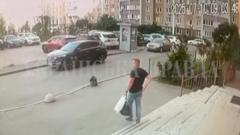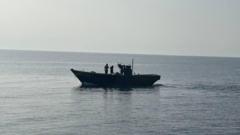As the retrial of Kim Jae-gyu, the assassin of President Park Chung-hee, begins, South Korea faces a reckoning with its past, where perspectives on Kim oscillate between viewing him as a patriot or a traitor, with democracy itself hanging in the balance.
The Complex Legacy of Kim Jae-gyu: Retrial of a Figure Divided by History

The Complex Legacy of Kim Jae-gyu: Retrial of a Figure Divided by History
South Korea’s high-profile retrial of former KCIA chief Kim Jae-gyu raises questions of treachery and valor as the nation reassesses the assassination of President Park Chung-hee.
In a courtroom recounting events from nearly half a century ago, the legacy of Kim Jae-gyu, the former chief of the Korea Central Intelligence Agency (KCIA) and the one-time assassin of President Park Chung-hee, is being revisited in a highly publicized retrial. The events of that fateful night, October 26, 1979, resulted in gunshots that changed the trajectory of South Korea, leaving an indelible mark on its complex history and contemporary society.
Yoo Seok-sul, a retired security guard who witnessed the aftermath of the assassination, recalls the night with a blend of horror and disbelief. "I never imagined that it was the president," he admits, echoing a sentiment shared by many in the country at that time. As Kim Jae-gyu fired the shots that killed Park, he was a close associate of the president and had risen through the ranks of the intelligence agency that played a key role in Park's authoritarian regime.
The assassination of Park, who governed South Korea for 18 years, marked the end of an era characterized by both economic growth and political oppression. Kim, however, was tried and executed just months later, found guilty of insurrection for claiming to act alone in an effort to prevent what he described as impending tyranny—a claim that has sparked controversy and debate over the decades.
Now, as Kim's family advocates for his retrial, opinions continue to diverge sharply. Some revere him as a martyr for democracy, while others view him merely as a ruthless assassin who ultimately betrayed his leader. A prominent journalist notes that despite Kim's implied frustrations with Park’s leadership, there is no substantial evidence to suggest he actively opposed the regime before the assassination.
During the original military court proceedings, evidence emerged that cast doubt on the integrity of Kim's trial. Allegations of torture during his detention and trial have resurfaced, leading to renewed scrutiny of the processes involved in his conviction. As the Seoul High Court reexamines these circumstances, the specter of past injustices looms large, reminding many of the fragile nature of South Korea’s democracy.
Kim’s sister, who has campaigned tirelessly for a chance to clear her brother's name, believes strongly that he acted not out of personal ambition but from a sense of purpose, attempting to catalyze change in a system saturated with malfeasance. “My brother was never the kind of person who would commit such an act just to become president,” she argues, painting a more sympathetic portrait of a man wrestling with the paradoxes of power.
As this retrial unfolds amidst contemporary political turbulence, the juxtaposition of Kim’s actions and the authoritarian legacy of Park provides fertile ground for debate about the nature of justice in a society still grappling with its past. Many observers suggest that this moment presents a critical opportunity for South Korea to reflect not only on individual actions but also on the overarching narrative of its journey toward democracy.
The outcome of Kim Jae-gyu's retrial may not only redefine his personal legacy; it has the power to influence how future generations of South Koreans understand their own history—a history permeated with complex instances of sacrifice, betrayal, and the perpetual struggle between authoritarianism and democratic governance.





















